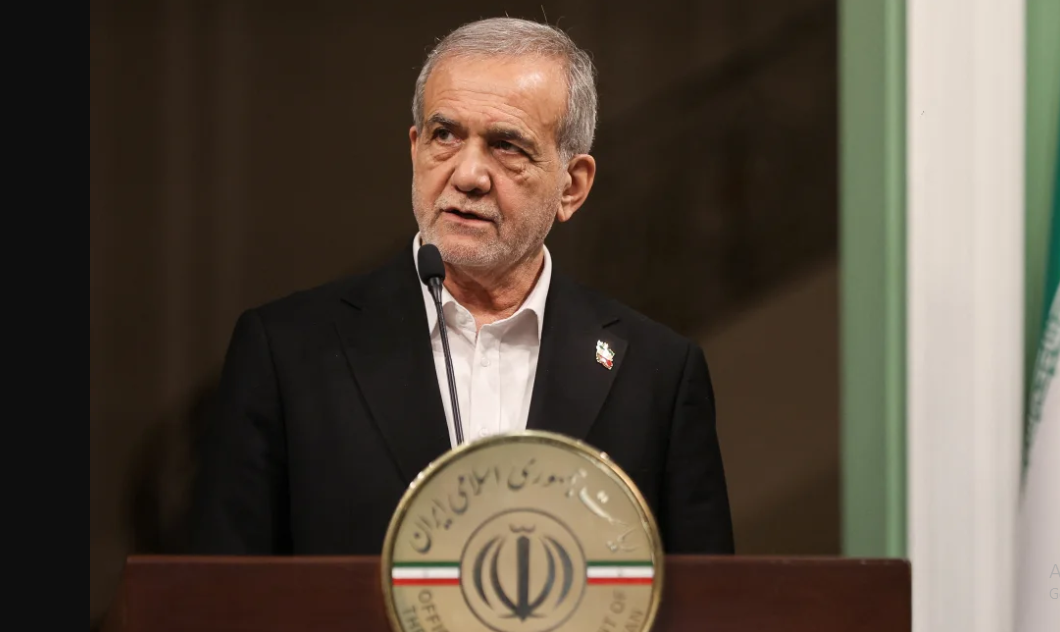INTERNATIONAL

IRAN REJECTS TRUMP’S ‘THREATS,’ AFFIRMS COMMITMENT TO ONGOING NUCLEAR TALKS
Iran Rejects Trump’s Warnings, Reaffirms Commitment to Nuclear Negotiations
Iranian President Masoud Pezeshkian has reiterated his country’s preference for diplomacy over conflict with the United States, while firmly rejecting what he described as threatening remarks by former President Donald Trump.
“We do not want war; we prefer negotiation and dialogue. But we are not intimidated by threats and will not back down from our lawful rights,” Pezeshkian stated during an event in the southern port city of Bandar Abbas on Saturday.
Though he didn’t specify which remarks he was responding to, Trump had reportedly said during a recent Middle East trip that Iran must “move quickly” in talks with the U.S. or “something bad’s gonna happen.”
The U.S. and Iran recently concluded a fourth round of nuclear negotiations in Oman, focused on limiting Tehran’s uranium enrichment activities. A date for a new round of talks has yet to be announced.
Pezeshkian dismissed Trump’s statements as contradictory and lacking credibility. “Only Trump himself believes his rhetoric about the Iranian people,” he said. “He talks of peace and stability, yet simultaneously threatens us with advanced weapons and conflicting messages of peace, violence, and insecurity.”
Meanwhile, Iran’s Supreme Leader Ayatollah Ali Khamenei also addressed Trump’s recent comments, labeling them “a disgrace to the American nation” and “unworthy of any response.”
Trump Claims Nuclear Deal Offer, Iran Denies Receiving Proposal
On Friday, former U.S. President Donald Trump announced that Washington had submitted a formal proposal for a nuclear agreement with Iran. However, Iranian Foreign Minister Abbas Araghchi promptly denied the claim, stating that Iran had not received any written proposals—directly or indirectly—from the United States.
“There is no scenario in which Iran will relinquish its legitimate right to enrich uranium for peaceful purposes,” Araghchi said, emphasizing that this right is protected under the Non-Proliferation Treaty (NPT) and afforded to all its signatories.
Last week, U.S. envoy Steve Witkoff told Breitbart that Iran’s enrichment program must be completely dismantled. Yet in a previous interview with Fox News, Witkoff had appeared more flexible, suggesting that low-level enrichment might be permitted.
The latest round of nuclear negotiations, held in Muscat, Oman, was described as “challenging” by a spokesperson for Iran’s foreign ministry. In contrast, a senior official from the Trump administration described the over three-hour discussion as “encouraging” in comments to CNN.
Throughout his Gulf tour, Trump has repeatedly warned that Iran must never be allowed to develop nuclear weapons. He has threatened military action should Iran fail to reach an agreement with the U.S., although he has stopped short of definitively ruling out Iran's ability to enrich uranium. While low-level enrichment can serve peaceful purposes such as energy production, highly enriched uranium can be weaponized.
"This represents a significant development in our ongoing coverage of current events."— Editorial Board









